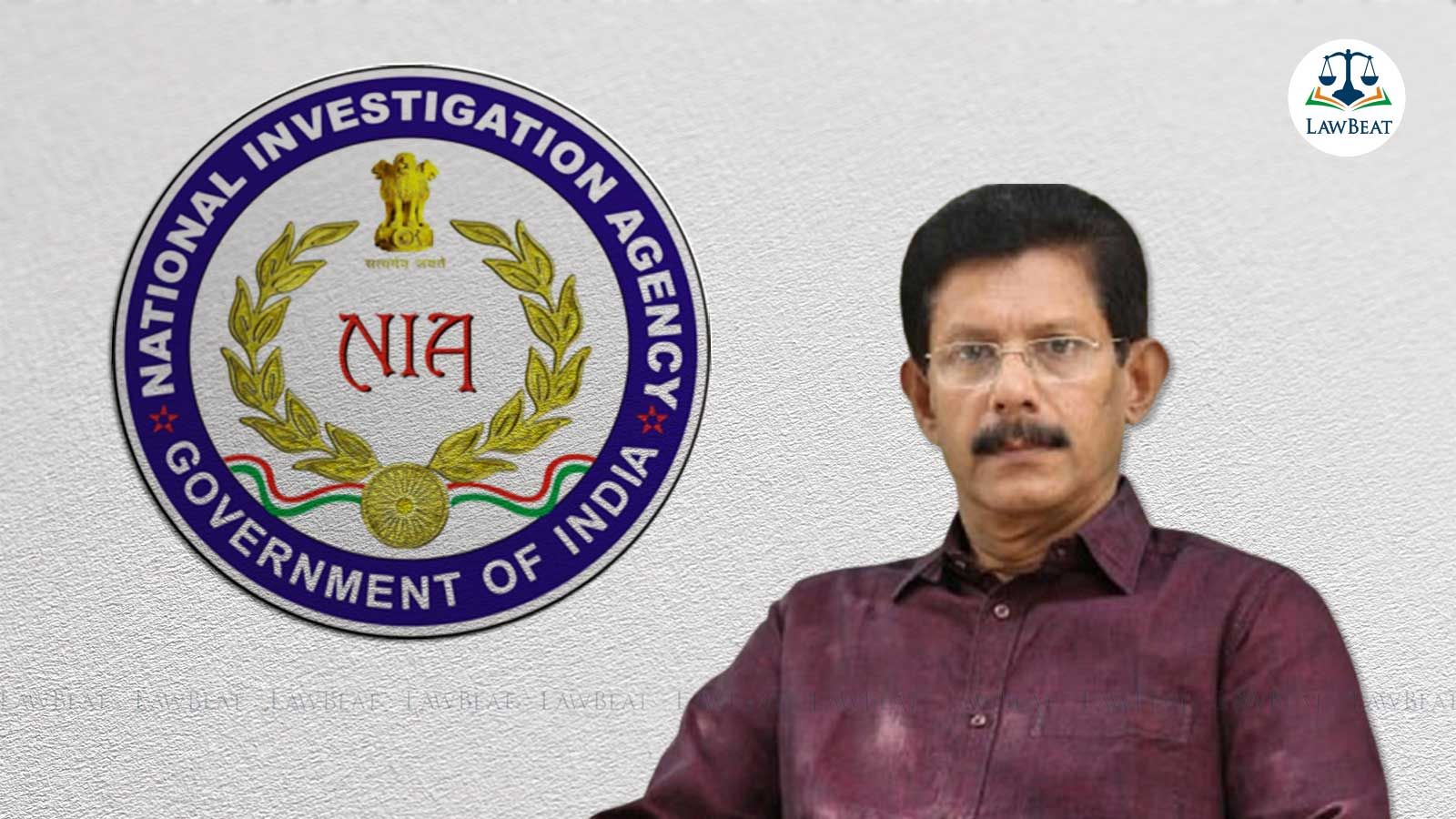"An attempt to form parallel religious judicial system”: Kerala Court Sentences 3 PFI Men to Life Term for Chopping Prof's Hand for Alleged Blasphemy

Prof. T. J. Joseph had set a Malayalam language question paper for the B.Com first-year students. In Question No.11, the students were asked to provide the most suitable punctuations and symbols to a two-piece dialogue a man named 'Mohammed' had with God.
A National Investigation Agency (NIA) Court in Kerala on Thursday sentenced three of the six persons convicted in a case of year 2010 for the attempted murder of a professor by chopping off his palm to life imprisonment.
The right hand of T J Joseph, professor of Newman College in Thodupuzha in Idukki district, was chopped off by members of the now-banned radical Islamic outfit Popular Front of India (PFI) on July 4, 2010.
Special NIA Judge Anil K. Bhaskar said, "The citizenry has a 'fundamental' and 'human right' from any kind of psycho-fear, threat, danger or insecurity at the hands of anti-social elements. Otherwise, they cannot strive towards excellence in all spheres of their individual and collective activity".
“The accused, by their violent terrorist activity, had really struck terror in the people's minds. To avoid repeating similar incidents, imposing stringent punishment on the accused is highly necessary”, he opined.
In 2010, T. J. Joseph was an Associate Professor and the Head of the Malayalam department of Newmans College, Thodupuzha. He set the Malayalam language question paper for the second-semester internal examination for the B.Com first-year students. The examination was held on March 23, 2010.
In Question No.11 of the said paper, the students were asked to provide the most suitable punctuations and symbols to a two-piece dialogue a man named 'Mohammed' had with God.
Mohammed starts the conversation. It goes on as:
Mohammed: Creator Creator
God: What is it son of a bitch.
Mohammed: A mackerel if one cuts it how many pieces will there be
God: You dog how many times do I have to tell you it is three.
This question created embarrassment among certain students and some felt it most inappropriate. After two days, question No. 11 became so controversial. It became a boiling issue resulting in many protests, especially from Muslim organisations. PFI & SDPI were at the forefront of these protests. There were processions, hartal etc. The college authorities received anonymous threatening letters.
Thereafter, a suo moto criminal case got registered against Prof. Joseph on April 1, 2010. He was remanded to jail and released on bail after six days. In May 2010, three times, a series of incidents occurred in which persons, as a group, trespassed into the residence of Prof. Joseph “creating a sense of fear in the minds” of the professor and his family members.
On one Sunday morning, Prof. Joseph and his sister Stella and mother Elikutty had gone to a Church by car. While returning at around 8:05 am, a group of men armed with deadly weapons and explosive substances came in a van and intercepted the car, committed mischief causing damages to the car, pulled out Prof. Joseph from the car, and “inflicted multiple cut injuries”, at the end “chopped off his right hand”, the one used by the Professor to pen the controversial question, and after that threw away the severed hand to the nearby compound.
“Here is a case wherein a Professor's hand was chopped off and thrown out in broad daylight in the presence of his relatives and neighbours, striking terror in the mind of a section of people. The situation was really horrible. As prescribed in their religious text, the accused were delivering sentences on Prof. Joseph for the alleged blasphemy of Prophet Mohammed and Islam in the question paper set by the said Professor. The mental trauma and physical pain suffered by the Professor is terrific. His wife, who had witnessed this incident, could not withhold the trauma for long and committed suicide”, the court said.
The Special NIA Judge stated that the act of the accused was a challenge to the secular fabric of our Nation and it attempted to establish a parallel religious judicial system which is absolutely illegal, illegitimate and unconstitutional. “It has no place in independent India under our constitutional scheme. A country governed by the rule of law cannot fathom it”, he added.
While observing that the convicts took law the law into their own hands and held that it was an act of blasphemy to Prophet Mohammed and Islam, the court said, “Needless to say, faith cannot be used as a dehumanising force, and more importantly, a country governed by the rule of law cannot fathom it”.
The court noted that the victim professor was referred as a “Christian Terrorist” by the accused persons.
On the aspect as to whether the act was an “attempt to murder”, the court said, "No one has a license to run around inflicting injuries that are sufficient to cause death in the ordinary course of nature and claim that they are not guilty of murder".
Accordingly, the NIA court sentenced Sajil, Nasar and Najeeb to a life term, along with a fine of Rs. 50,000 each, under the Unlawful Activities (Prevention) Act (UAPA) for the offence of being part of a terrorist organisation. The other three convicted, namely M. K. Nausha, P. P. Moideenkunu and P. M. Ayoob, have been sentenced to three years.
Case Title: Union of India (represented by National Investigation Agency, Kochi) v. Savad & Ors.
